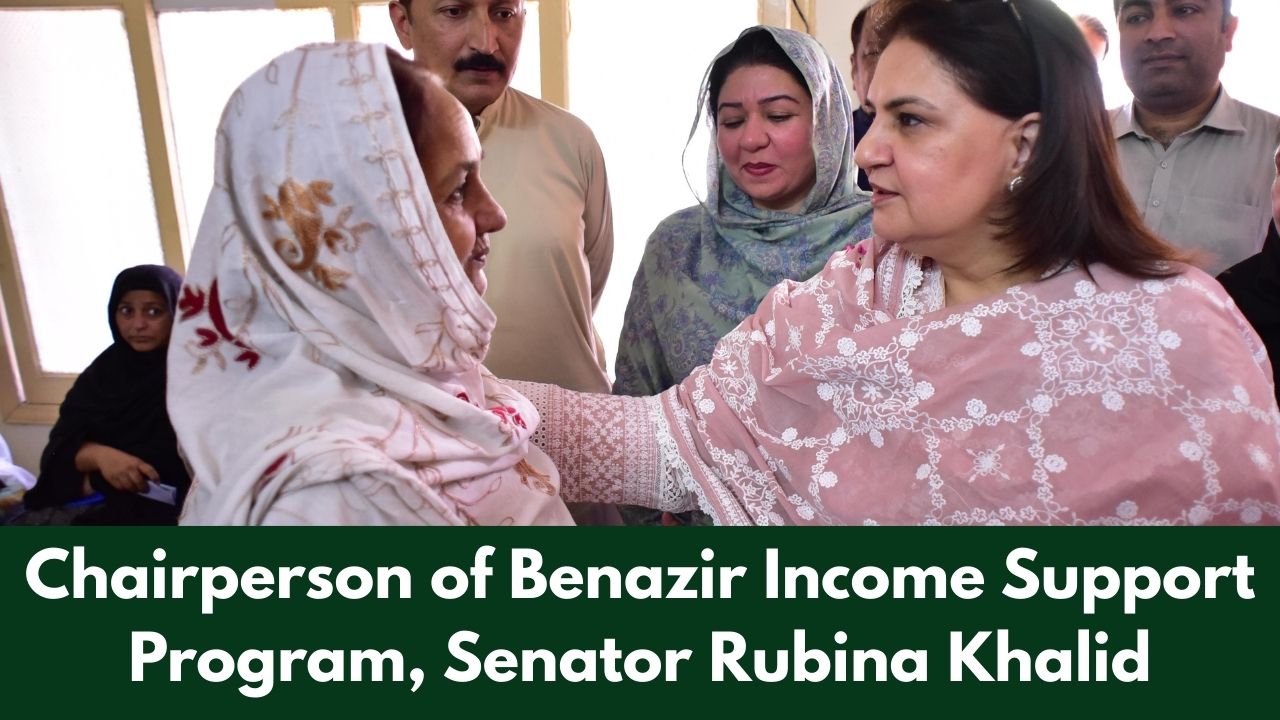Senator Rubina Khalid, Chairperson of the Benazir Income Support Program (BISP), recently conducted a meaningful inspection of BISP operations in Punjab, highlighting the government’s commitment to strengthening social safety net programs. Her visit to the District Office in Chakwal and the Tehsil Office in Talagang focused on improving service delivery for vulnerable populations.
Key Initiatives Announced During the Visit
During her comprehensive tour, Senator Khalid introduced several important measures designed to enhance the effectiveness of BISP operations and ensure that support reaches those who need it most.
Direct Beneficiary Engagement
The Chairperson took time to personally interact with women beneficiaries who had come to the offices for survey registration and stipend collection. This direct engagement allowed her to:
- Hear firsthand accounts of challenges faced by beneficiaries
- Address immediate concerns raised by program participants
- Observe the quality of services being provided at local offices
- Ensure that dignified treatment of all beneficiaries is prioritized
Table: Key Directives Issued During the Chairperson’s Visit
| Focus Area | Specific Instructions | Expected Impact |
|---|---|---|
| Staff Conduct | Treat all women beneficiaries with respect and dignity | Improved service experience |
| Survey Process | Ensure survey registration remains completely free | Prevention of exploitation |
| Mobile Registration | Register active phone numbers during enrollment | Streamlined communication |
| Payment Integrity | Beneficiaries must count full amounts and obtain receipts | Reduction in payment discrepancies |
| Geographic Access | Establish mobile payment camps for remote areas | Improved accessibility |
| Banking Services | Open bank accounts for beneficiaries from distant locations | Financial inclusion |
| Prioritization | Give special attention to elderly and pregnant women | Support for vulnerable groups |
Tackling Corruption and Improving Transparency
Zero-Tolerance for Deductions
A significant focus of Senator Khalid’s visit was addressing concerns about payment integrity. She emphasized that:
“There is no fee for the BISP survey—it is completely free,” the Chairperson stated firmly, adding that “strict action will be taken against those involved in deductions.”
This strong stance underscores the program’s commitment to ensuring that every rupee allocated reaches the intended beneficiaries without unauthorized deductions by intermediaries.
Proper Documentation and Verification
The Chairperson outlined specific practices that beneficiaries should follow to protect themselves from potential exploitation:
- Count the full amount received immediately upon payment
- Always obtain a computerized receipt for every transaction
- Report any discrepancies or deductions immediately
- Avoid making repeated visits for survey registration
These measures create multiple layers of verification that help ensure transparency throughout the payment process.
Operational Improvements and Administrative Oversight
Briefing on Current Operations
During the visit, BISP Zonal Director Iftikhar Ahmad provided a comprehensive briefing on:
- Current beneficiary numbers across all tehsils in Chakwal District
- Administrative challenges faced by local offices
- Implementation status of existing programs
- Resources required for effective service delivery
This data-driven approach allows leadership to make informed decisions about resource allocation and program improvements.
Enhanced Survey Accuracy
Senator Khalid placed special emphasis on the importance of accurate data collection during household surveys. She instructed survey teams to:
- Ensure meticulous data entry for all household information
- Verify eligibility criteria through proper documentation
- Implement special measures for elderly and pregnant women
- Maintain the integrity of the selection process
These guidelines reinforce the program’s commitment to identifying and supporting those who are genuinely in need of assistance.
Expanding Access Through Technology and Outreach
Mobile Payment Solutions
Recognizing the challenges faced by beneficiaries from remote areas, the Chairperson proposed:
“Mobile payment camps and opening bank accounts for beneficiaries from remote areas will significantly reduce their travel burden,” she noted during discussions with staff.
This initiative addresses a critical barrier to access, especially for women with limited mobility or those living in areas with poor transportation infrastructure.
Streamlined Communication
Senator Khalid emphasized the importance of effective communication with beneficiaries, advising them to:
- Register mobile numbers they actively use
- Stay informed about payment dates and procedures
- Understand their rights regarding payment amounts
- Know proper channels for reporting issues
These communication improvements aim to reduce confusion and ensure beneficiaries can fully access their entitlements.
Program Mission and Core Values
Throughout her visit, Senator Khalid reinforced the fundamental mission of BISP, stating that “this program is purely for the welfare of the poor.”
This clear articulation of purpose serves as a reminder that all administrative processes, technological innovations, and policy decisions must ultimately serve the goal of supporting vulnerable populations effectively.
Future Directions for BISP Services
While addressing staff and beneficiaries, the Chairperson outlined a vision for future improvements, including:
- Expanded mobile services to reach more remote communities
- Enhanced training for frontline staff on respectful service delivery
- Streamlined complaint resolution mechanisms
- Increased financial literacy support for beneficiaries
These forward-looking initiatives demonstrate BISP’s commitment to continuous improvement and responsiveness to beneficiary needs.
Conclusion
Senator Rubina Khalid’s visit to the BISP offices in Chakwal and Talagang represents more than routine administrative oversight—it signals a renewed commitment to program integrity, beneficiary dignity, and effective service delivery. By directly engaging with beneficiaries, issuing clear directives against exploitation, and introducing practical solutions for operational challenges, the Chairperson has set a clear path forward for BISP operations in the region.
The emphasis on zero-tolerance for corruption, coupled with practical measures to improve accessibility for remote populations, underscores BISP’s dual focus on integrity and inclusion. As these directives are implemented, beneficiaries can expect more respectful treatment, transparent payment processes, and improved access to vital financial support.
Through these continued improvements, BISP aims to strengthen its role as Pakistan’s premier social safety net program, ensuring that support reaches those who need it most while maintaining the highest standards of operational integrity and beneficiary service.
